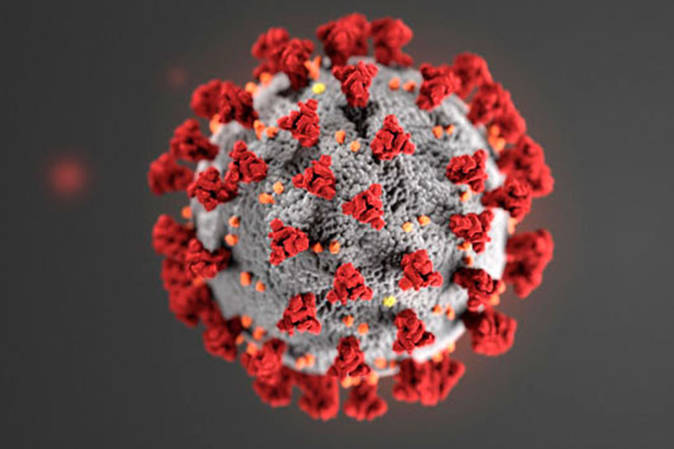Health experts and officials with the State of Alaska spent Tuesday night answering questions from the public about the treatment of COVID-19 patients during a virtual town hall broadcast live on Gov. Mike Dunleavy’s Facebook page.
The state also reported two additional resident cases and two additional nonresident cases, bringing those totals to 411 and 17, respectively.
The town hall was hosted by Dave Stieren, director of community relations for Dunleavy, and featured Alaska’s Chief Medical Officer Dr. Anne Zink, DHSS Commissioner Adam Crum and several other health experts, including epidemiologists, hospital administrators and pharmacists.
The town hall discussion covered a number of topics, including the transfer of patients from one facility to another, the likelihood of antibody or serology testing being used in the state, the concern of people traveling into Alaska from high-risk areas and the key differences between this disease and influenza.
“The short answer is: it’s more contagious and it’s more deadly,” Dr. Lior Dolgonos, an intensive care physician with the Alaska Hospitalist Group, said on the difference between the flu and COVID-19.
Dr. Coleman Cutchins, a state pharmacist with DHSS, said that the lack of a vaccine or antiviral treatment for COVID-19 is why the pandemic has been handled differently than an outbreak of influenza.
Zink said that hospitals and health care facilities have established medical transportation protocols for moving patients from one facility to another that depend on the severity of the patient’s conditions. Patients are typically treated in the area in which they reside, Zink said, unless their condition requires treatment at a facility more advanced than what is available locally.
Dr. Joe McLaughlin, an epidemiologist with DHSS, said that antibody or serology testing for COVID-19 is “rapidly improving” and, when it does start to be used in the state, it will be used in the coming months to determine how many people in a given community may have contracted the disease.
McLaughlin also acknowledged that people coming to the state from areas with high infection rates do have a higher chance of spreading the disease, and said that those travelers are an ongoing concern of the state.
Officials also discussed the use of hydroxychloroquine — a drug that has historically been used to treat malaria, lupus and rheumatoid arthritis — and its effectiveness in treating COVID-19.
Stieren consolidated what he said were several different questions about the drug and asked the panel to speak about its use in the context of the current pandemic. A discussion followed about various forms of treatment that are being tested around the world.
Cutchins said that the FDA has not yet approved any drugs for the treatment of COVID-19, and the studies regarding hydroxychloroquine have not shown substantial benefit from the use of the drug.
“It has been looked at in drug studies, but so far none of those drug studies have shown benefit, and there has been some risk associated out there,” Cutchins said on Tuesday. “Coincidentally, it’s been removed from some of the studies, but again, it’s one of those things where we just don’t know yet. It’s such a new virus and such a new disease.”
The treatment of patients with COVID-19 is the responsibility of the patient’s physician, and there are no state laws or regulations that would prevent a doctor from prescribing hydroxycholoroquine for their patient, but the state is not currently recommending its use.
Another drug being tested for COVID-19 treatment is remdesivir, which received emergency authorization from the FDA for its use. The state of Alaska has a supply of remdesivir, Cutchins said, that can and will be used on certain patients who have been hospitalized and are severely ill. The drug is still considered experimental, so patients must consent before it is used in their treatment.
Dolgonos said that he doesn’t recommend the use of hydroxycholoroquine for his patients because it hasn’t been shown to be effective.
“It just hasn’t shown efficacy clinically against the virus or for those who are ill,” Dolgonos said. “And yet it does show a significant amount of side effects and potential toxicities, so the major recommendations are, unless it’s within a studied protocol, not to give it to patients, and so we don’t intend to.”
Another, non-pharmacological form of treatment was brought up during the town hall: the use of convalescent plasma donated by patients who have fully recovered from COVID-19.
McLaughlin said that the use of donated plasma shows promise, although the clinical trials surrounding its use are still in their early stages.
Blood plasma donated by people who have recovered from COVID-19 contains the antibodies that helped fight the virus, so some studies have shown that it helps in the recovery process of patients who are seriously ill.
Zink said that one Alaska patient has been treated with the use of convalescent plasma, and plasma is being collected from those who have recovered.
The town hall is available for viewing in its entirety on the governor’s Facebook page at Facebook.com/GovDunleavy
COVID-19 in Alaska: by the numbers
Two new cases of Alaska residents announced Tuesday are from Anchorage and Sitka, according to a May 26 press release from DHSS. Both are female, one is between the ages of 20 and 29, and one is between the ages of 30 and 39.
Both of the two nonresident cases are workers in the seafood industry who were identified in Anchorage. Of the 17 nonresident cases reported in Alaska, 12 have been workers in the seafood industry.
No new hospitalizations or deaths were reported, and those totals remain at 45 and 10, respectively. One additional Alaskan has recovered from the disease, bringing that number to 362.
A total of 44,964 tests for COVID-19 have been conducted statewide. Locally, Central Peninsula Hospital has conducted 982 tests, with 9 coming back positive, 948 negative and 25 pending results.
For the latest information on the state’s response to the COVID-19 pandemic, visit covid19.alaska.gov or email covidquestions@alaska.gov.

